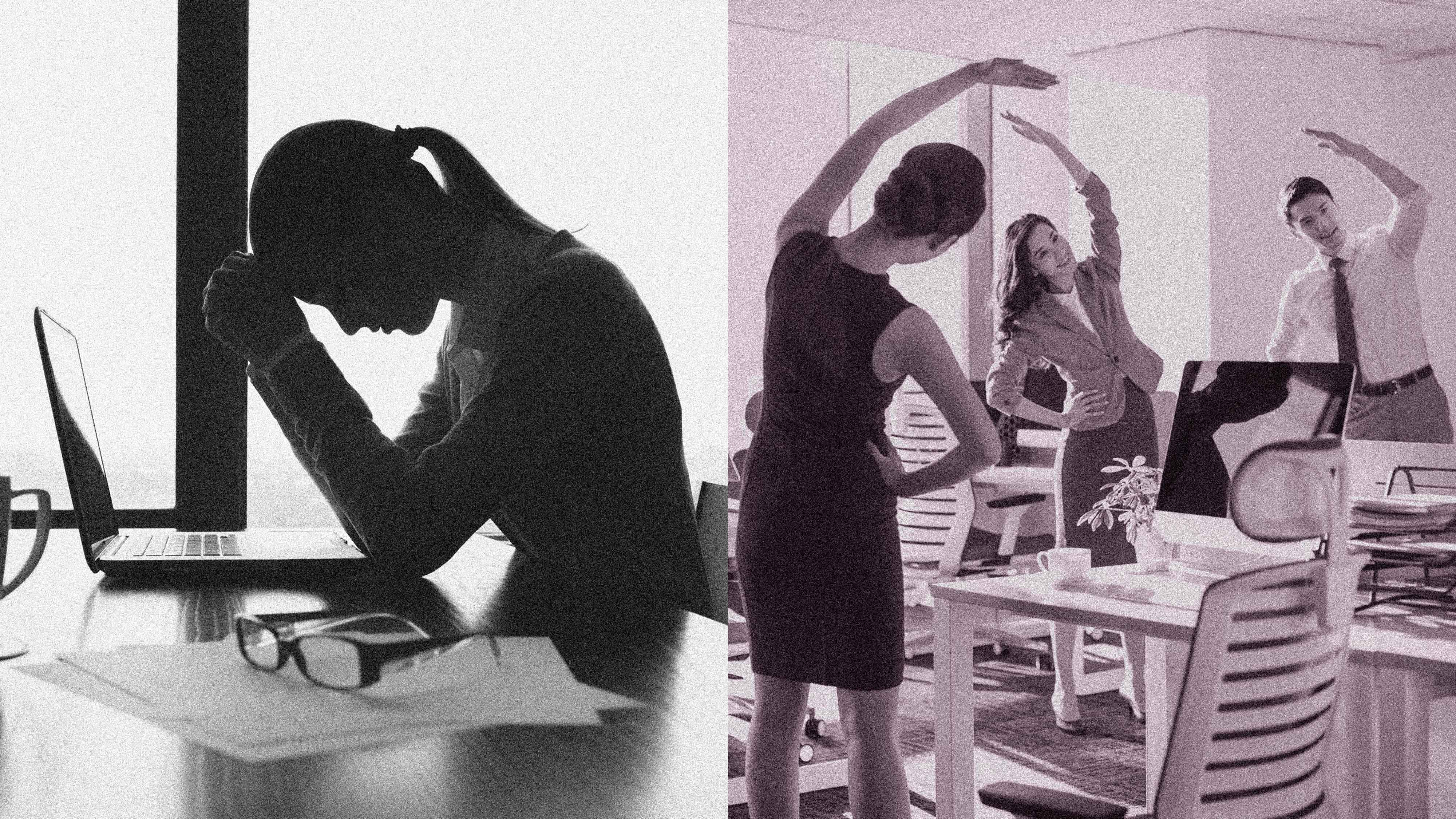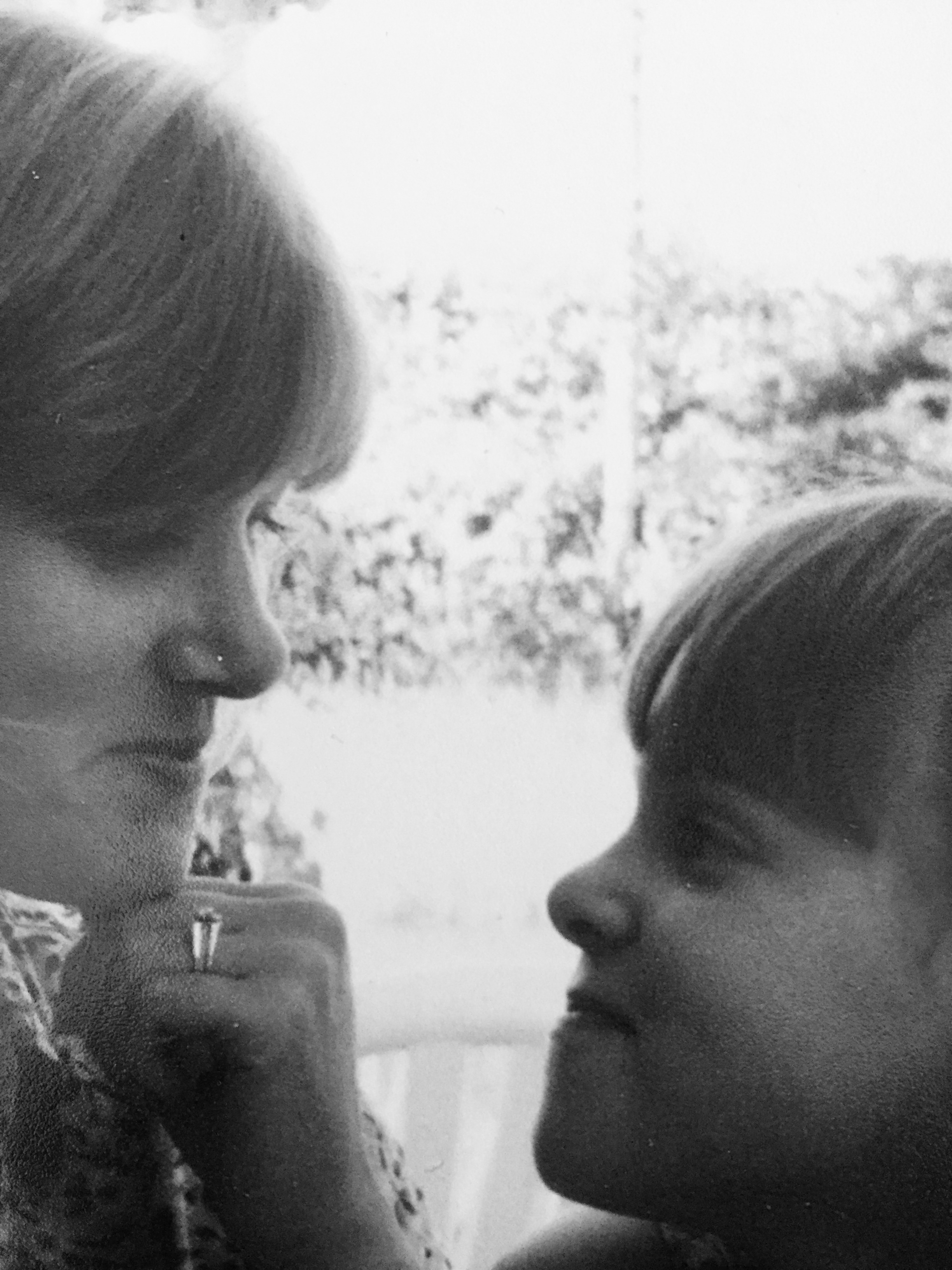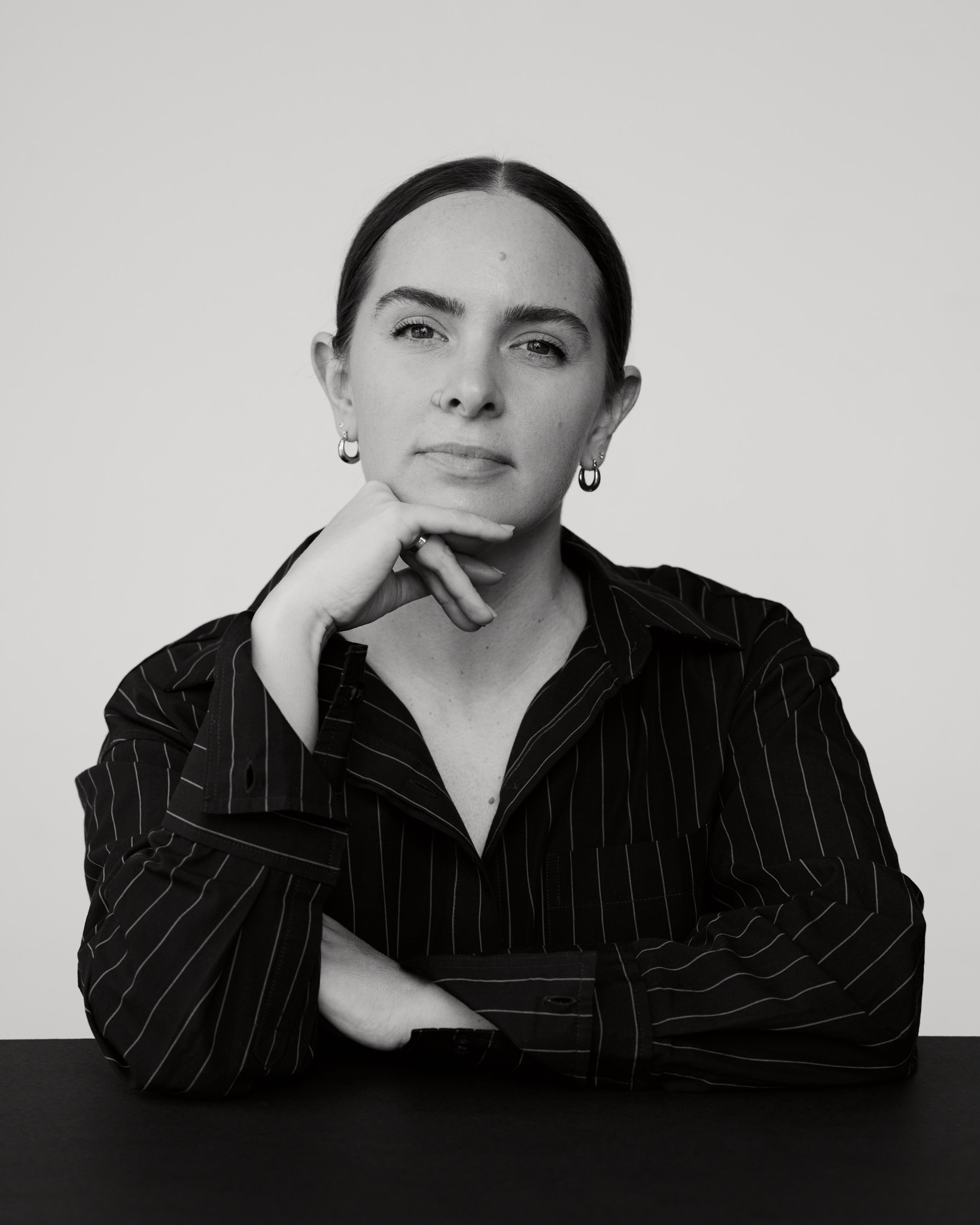My Job’s “Wellness” Program Nearly Sent Me Over the Edge
Caring for my dying mother was the hardest thing I’ve ever done. Corporate wellness culture made it even harder.


The morning my new job asked us to map out our “vision and goals,” I was still reeling from a night at my sick mother’s bedside. Around the bright boardroom, my co-workers—mostly women—scribbled furiously, as if they’d been waiting their whole lives for this prompt. One by one, they stood to share their goals, while my pen still hovered over the printout. Is it pathetic to write “buy a BBQ”? I wondered. That was my plan for Saturday: it was tangible, close, survivable.
My mom had been diagnosed with Hodgkin’s Lymphoma two years earlier. I was in my early twenties and working as an associate stockbroker when I became her primary caregiver, handling everything from scheduling appointments to cooking meals to sleeping overnight in the hospital. The volatility wasn’t just in the markets—it was in the office too. Moods rose and fell with the numbers, and with everything unraveling at home, it was just too much instability for me. So I left and joined a company that emphasized wellness culture, drawn in by its promises of community. In my final interview, I said, “My mom has cancer. She’s my priority.” The hiring manager’s response struck me as understanding and encouraging.
A values-driven company, I thought. One that emphasized community and wellness. Surely it would hold space for the weight I was carrying. I thought I’d found a workplace where I wouldn’t have to hide how hard things were. But what I quickly learned is that corporate wellness often rewards performance—not honesty. And when you’re grieving, when you’re unraveling, when you’re just trying to survive the day, there’s no room to opt out.
So there I was, sitting in that boardroom, staring at a blank worksheet while everyone else eagerly shared their five-year plans. Just as the facilitator called my name, I crossed out what I’d written and mumbled, “I’m not quite…” before my new boss cut me off: “Make sure your goals are crystal clear by next week and ready to share.” I nodded.

Lauren Boswell with her mother.
Months had passed since that first “vision and goals” session, and on the surface, I was doing well. I smiled in meetings, I made friends and enjoyed wearing sweatpants to work. But underneath, I was unraveling. My mom was getting worse. Every day I was splitting myself in two: one version learning and contributing, the other bracing for the next scan result, the next hard conversation, the slow fade of the person who made me.
When I still hadn’t posted my goals on the wall or shared them in a team meeting, my boss took note. With a tone that straddled concern and condescension, she asked, “Why haven’t you shared your goals?” I tried to explain, but as they’d say in that office—it didn’t land. Over time, my struggle to fit the company’s personal-development culture was met with quiet disapproval. It often felt like my grief was being interpreted as “a lack of clarity”—but I was just in survival mode.
After my mom passed away in 2015, I wanted to keep moving. I showed up. I worked. I tried. But I was also grieving, acting as her power of attorney, managing life insurance, selling my childhood home. I began to notice things: how all the women around me seemed effortlessly upbeat. They practiced nodding. The “uh-huh, tell me more.” The oat milk lattes. The back-to-back sweat sessions. The identical visions taped to the wall: white beachfront homes, half-marathon medals, corner offices. Maybe they’d found clarity through the work. Or maybe, like me, they were performing a version of themselves they thought the company wanted.
Get exclusive access to fashion and beauty trends, hot-off-the-press celebrity news, and more.
When I looked at that blank page, all I could see was that in ten years, she wouldn’t be here. Every goal felt hollow—something she would never know or witness. How was I still expected to plan, to strive, to want more? But eventually I gave in. I filled out the worksheet with goals that didn’t feel real. I took on more. I asked for stretch roles. But the more I leaned in, the harder it became. Though the culture had supportive elements, its emphasis on positivity and future planning was difficult to reconcile with my grief. It’s especially difficult for women, who are expected to be emotionally available and endlessly productive, nurturing and strategic, resilient and forward-thinking.
Sometimes, the most radical act of growth is just surviving the day.
Eventually, I arrived at the next company offsite ready—or at least trying—to show up differently. On the first day, we were asked to define our life’s purpose and present it to hundreds of peers. I scoffed. Distill your life’s purpose in an afternoon? Still, when it was my turn, I stood up and said, “My purpose is to live life to the fullest in my mom’s honor.” For the first time in years, I felt proud. It was real. Later that night, as I recall it, my boss pulled me aside and said, "Your whole identity can’t be that your mom died." I was gutted. In one breath, it felt as though something sacred had become shameful.
Driving home the next morning, I started to question whether workplace wellness programs were helping anyone at all, or just adding another layer of pressure. In 2022, companies spent $51 billion on these initiatives, yet employee stress remains at an all-time high. Nearly 85 percent of large U.S. employers offer wellness programs, but burnout continues to rise, and less than half of workers say they feel supported by their employer’s efforts. Eventually, I realized I wasn’t broken for struggling to keep up. The system just wasn’t built for someone carrying what I was.
Later that night, as I recall it, my boss pulled me aside and said, ‘Your whole identity can’t be that your mom died.’
I wasn’t ready for more change after losing my mom, so I stayed with the company for another four years. The familiarity allowed for some steadiness while I slowly began to imagine what could come next. It wasn’t all bad there—I made lifelong friends, and the experience helped clarify what I didn’t want in a workplace: the pressure to always be emotionally aligned, upbeat, “on.” That clarity, in turn, led me to something new. I started a small floral business out of my garage and began writing my upcoming memoir—two projects connected to her in different ways. Maybe I was right: she’s had a hand in my future all along.
With distance, I can see that grief reveals an essential truth: the real work isn’t chasing goals others validate—it’s having the courage to live within your own template. Living in honor of my mom isn’t an identity to outgrow. It’s a foundation I grow from. Wellness culture might empower some, but for others, especially those in crisis, it becomes yet another metric we’re failing to meet. Sometimes, the most radical act of growth is just surviving the day. And sometimes, the most honest version of wellness is letting grief be true.

Lauren is writing a memoir about being her mother’s primary caregiver and navigating life—and becoming a mom herself after the death of her own. She is also working on a children’s picture book inspired by one of her favorite daily rituals with her toddler. Her writing has appeared in Spread the Jelly, Motherly, and more. She lives in Vancouver, BC, with her husband and son.